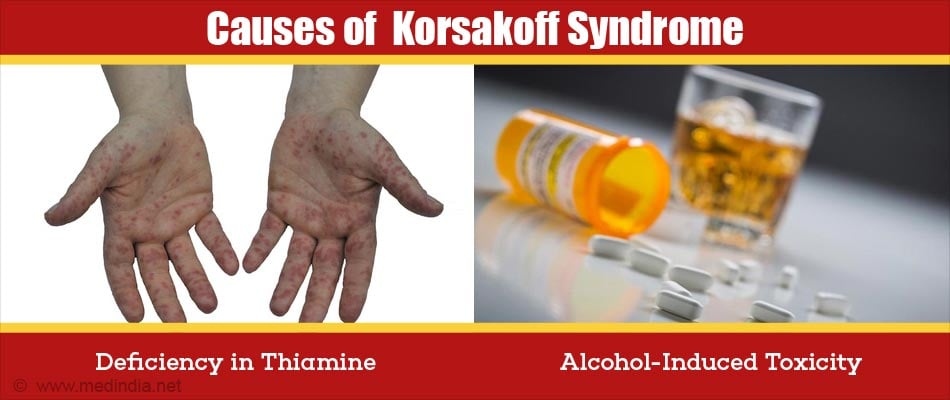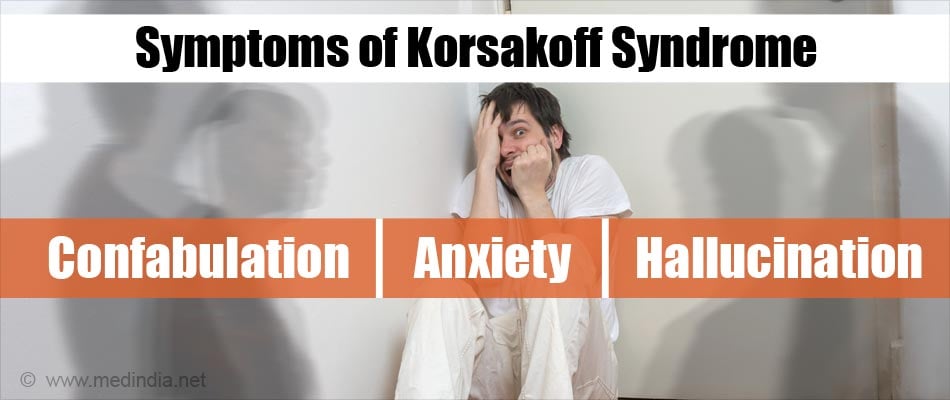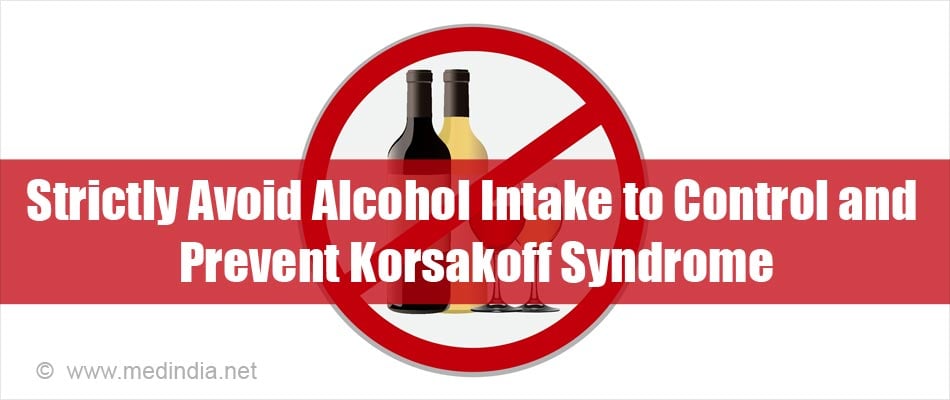- Wernicke-Korsakoff syndrome - (https://medlineplus.gov/ency/article/000771.htm)
- Day E, Bentham PW, Callaghan R, Kuruvilla T, George S. Thiamine for prevention and treatment of Wernicke-Korsakoff Syndrome in people who abuse alcohol. Cochrane Database of Systematic Reviews 2013, Issue 7. Art. No.: CD004033. DOI: 10.1002/14651858.CD004033.pub3
- Zubaran C, Fernandes JG, Rodnight R. Wernicke-Korsakoff syndrome. Postgrad Med J. 1997;73:27-31.
- Sechi G, Serra A. Wernicke's encephalopathy: New clinical settings and recent advances in diagnosis and management. Lancet Neurol. 2007;6:442-455.
- Thomson AD, Marshall EJ. Natural history and pathophysiology of Wernicke's encephalopathy and Korsakoff's psychosis. Alcohol Alcohol. 2006;41(2):151-158.
- Brion M, Pitel A-L, Beaunieux H, Maurage P. Revisiting the Continuum Hypothesis: Toward an In-Depth Exploration of Executive Functions in Korsakoff Syndrome. Frontiers in Human Neuroscience. 2014;8:498. doi:10.3389/fnhum.2014.00498
- Yoneoka Y et al. Acute Korsakoff syndrome following mammillothalamic tract infarction. Am J Neuroradiol. 2004;25(6):964-968.
- Reed JM, Squire LR. Retrograde amnesia for facts and events: Findings from four new cases. J NeuroSci. 1998;18(10):3943-3954.
- Sullivan EV, Pfefferbaum A. Neuroimaging of the Wernicke-Korsakoff syndrome. Alcohol Alcohol. 2009;44(2):155-165.
- Thomson AD, Guerrini I, Marshall EJ. The Evolution and Treatment of Korsakoff's Syndrome: Out of Sight, Out of Mind? Neuropsychology Review. 2012;22(2):81-92. doi:10.1007/s11065-012-9196-z
- Alzheimer's Society. What is alcohol-related brain damage? - (https://www.alzheimers.org.uk/download/downloads/id/1765/factsheet_what_is_alcohol-related_brain_damage.pdf)
- Wernicke-Korsakoff syndrome - (https://medlineplus.gov/ency/article/000771.htm)
What is Korsakoff Syndrome?
Korsakoff syndrome has been defined as “an abnormal mental state in which memory and learning are affected out of all proportion to other cognitive functions in an otherwise alert and responsive patient.” Sergei Korsakoff first identified this syndrome (1887) as a condition associated with memory disturbances. He noticed the condition mainly in alcoholic abuse cases and some non-alcoholic patients as well.
Korsakoff syndrome is often a progression of Wernicke encephalopathy (WE), though not always necessarily. Wernicke’s encephalopathy results from thiamine (vitamin B1) deficiency, commonly due to chronic alcoholism, and is associated with severe mental symptoms like confusion, ataxia (loss of control of movements) and eye problems like nystagmus (involuntary eye movements).
What are the Causes of Korsakoff Syndrome?
Korsakoff syndrome arises when WE is not treated on time. It arises due to a combination of the following:
- Deficiency in thiamine or vitamin B1 – Thiamine deficiency could be due to nutritional deficiency, genetic defects in thiamine metabolism, alcoholism, gastrointestinal cancer, AIDS, dialysis or tumors of the nervous system. However, Kosakoff psychosis mainly occurs following WE due to thiamine deficiency caused by alcoholism.
- Alcohol-induced toxicity to the nerves in the brain – This is observed in those individuals with chronic alcoholism having a poor dietary regimen, or when vitamins are not prescribed to alcoholic individuals undergoing rehabilitation.

What are the Symptoms of Korsakoff Syndrome?
One of the main symptoms of Korsakoff syndrome is retrograde amnesia (memory loss of events prior to the initiation of amnesia) and anterograde amnesia (inability to form new memories). The earlier memories are usually better preserved than the more recent ones. The consciousness is usually not affected. Other symptoms include:
- Confabulation (inventing stories) is observed in the initial stages but is less pronounced over a period of months to years
- Lack of interest or involvement; anxiety
- Hallucinations

How do you Diagnose Korsakoff Syndrome?
Korsakoff syndrome is diagnosed based on the history and clinical features of the patient. Obtaining information about the patient from family and friends regarding alcohol consumption, is useful to make the right diagnosis. A medical examination and tests can be conducted on a patient with suspected Korsakoff’s syndrome once the patient settles down from the confused state.
To understand the degree of deterioration of mental faculties, the Mini-Mental State Examination is useful. The questionnaire gives an idea of the mental state of the patient. Additional questions help in a more complete assessment of the mental state of the patient.
Tests are done to check for thiamine levels, albumin levels, and transketolase enzyme levels to detect thiamine and protein deficiency.
Liver function tests should be carried out. The levels of liver enzymes are usually high in alcoholic individuals.
Neuroimaging, such as magnetic resonance imaging (MRI) and computed tomography (CT) may be used to detect brain damage. However, based on the symptoms, treatment is initiated before imaging studies are carried out.
How do you Treat Korsakoff Syndrome?
The primary objective of treatment is to control the symptoms and prevent the condition from worsening.
The patient should be treated with injectable thiamine as soon as the diagnosis is made, though complete reversal of symptoms may not occur once Korsakoff syndrome symptoms appear.
Other deficiencies like magnesium and folate deficiencies should also be corrected.
A complete abstinence from alcohol is necessary. Recovery is often prolonged and the patient may require residential care.

How do you Prevent Korsakoff Syndrome?
Korsakoff syndrome can be prevented with the following steps:
- People who consume alcohol should ensure adequate intake of thiamine in their diet and should be prescribed thiamine supplements
- Alcoholic patients should enroll themselves in a de-addiction program. It is very important for the patient to have the support of family and friends.
- Patients with symptoms of Wernicke’s encephalopathy should be diagnosed and treated early.







